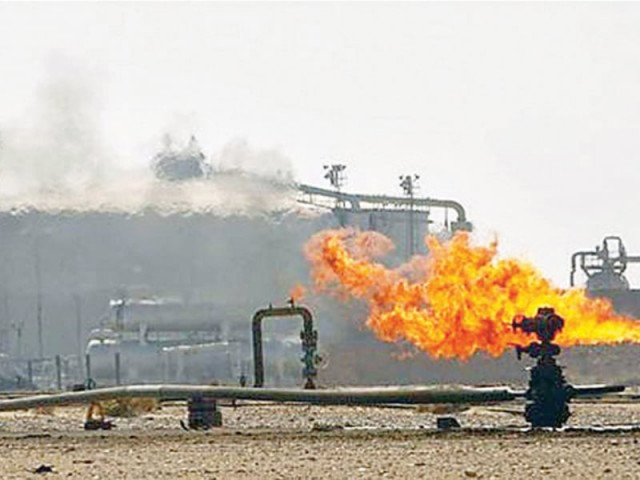Gas for power plant: Ministry of Industries refuses to give its backing
Prefers to supply gas to fertiliser plants to stave off import and subsidy costs.

The Ministry of Industries and Production has opposed the allocation of gas to a 50-megawatt power plant of Pakistan Petroleum Limited (PPL) and instead prefers to supply it to fertiliser plants, which are in critical need of energy to run their operations, officials say.
Giving its point of view, the ministry said the industrial sector, including fertiliser plants, was facing acute shortage of gas and the proposed gas may be supplied to the fertiliser manufacturers connected to the network of Sui Northern Gas Pipelines as these plants were running at sub-optimum levels.
In the wake of lower fertiliser production due to unsatisfactory gas supplies, the Ministry of Finance was forced to provide a subsidy of Rs94.8 billion on urea import in the last eight years, it said.
PPL, which has 50% working interest in Gambat South block located in Sanghar district, Sindh, has discovered gas in Wafiq X-1 and Shahdad X-1 wells in the block. Both wells are in the testing phase during which an estimated 30 to 60 million cubic feet of gas per day (mmcfd) will be produced.
According to officials, in a bid to bring the discovered gas online swiftly, PPL has come up with the request of earmarking 18 mmcfd of gas from Wafiq X-1 well for its planned 50MW power plant.
The company has outlined detailed estimates of the project and says the power plant is in parallel with the setting up of gas processing facilities for its sale to Sui Southern Gas Company and Sui Northern Gas Pipelines in the testing phase.
However, the Ministry of Petroleum and Natural Resources suggested in a summary sent to the Economic Coordination Committee (ECC) that PPL, a state-owned oil and gas explorer, could be allowed to consume 18 mmcfd from its own gas field in the power plant.
It argued that the gas allocation policy had been revised as the ECC had reset the priorities on January 19, 2013. Now, power plants are at number two in terms of priority followed by fertiliser manufacturers.
“The proposed project is aimed at early revenue generation from the gas field and fast-track installation of the power plant, which will contribute 50MW to the national grid,” the ministry said.
On its part, the Finance Division pointed out that the discovery of gas fell within the purview of Petroleum Policy 2009, which did not allow self-allocation of gas. “Therefore, earmarking 18 mmcfd for PPL’s power plant from its field will require policy relaxation.”
According to the policy, supply of gas for power generation was placed at the disposal of the Private Power and Infrastructure Board (PPIB) based on defined parameters, it said and suggested that the petroleum ministry should consult the water and power ministry before submitting the proposal to the ECC.
The Ministry of Water and Power has supported the allocation of gas to PPL during the exploration phase on a “take and pay” basis. It also proposed that in the post-exploration period, the project should be considered an independent power plant under the power generation policy of 2002.
The Planning Commission said the establishment of the 50MW power plant for 18 months as an interim arrangement was supported in principle provided it complied with the power generation policy. Apart from this, the leasing company and equipment selected for the power plant should be free from any litigation or investigation by a court or agency.
According to PPL, though circular debt risks can be avoided through gas sales to private purchasers like industrial zones, K-Electric and others, an arrangement through the National Transmission and Dispatch Company (NTDC) besides payment via letters of credit can also be incorporated into the power purchase agreement with the power purchaser in order to avert possible default.
Published in The Express Tribune, July 29th, 2014.
Like Business on Facebook, follow @TribuneBiz on Twitter to stay informed and join in the conversation.



















COMMENTS
Comments are moderated and generally will be posted if they are on-topic and not abusive.
For more information, please see our Comments FAQ